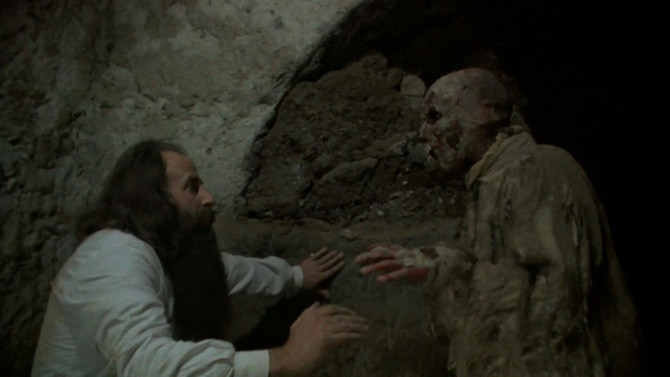
Unhallowed Ground
Of course, it is a good rule of thumb to never fool around with any zombies – after all, they can really make a mess of your pristine clothing – not to mention the whole ‘eating you’ thing. But here is something you perhaps didn’t know. . . the worst zombie of all – the ancient Etruscan. A gonzo, go for broke, grindhouse motion picture out of Italy, 1981's Burial Ground, directed by Andrea Bianchi (a wildcard, edgy film maker if there ever was one), is not for the faint of heart. Set in a stunning, if slightly shabby country villa (beautifully shot on location), a group of people have the misfortune of having been invited to celebrate a professor’s exciting new discovery. . . only problem, by the time they all arrive, the scientific mind (Raimondo Barbieri), has already been ripped to shreds by these walking dead Etruscans – you don’t have to worry too much, the prof’s fashion sense wasn’t very good.
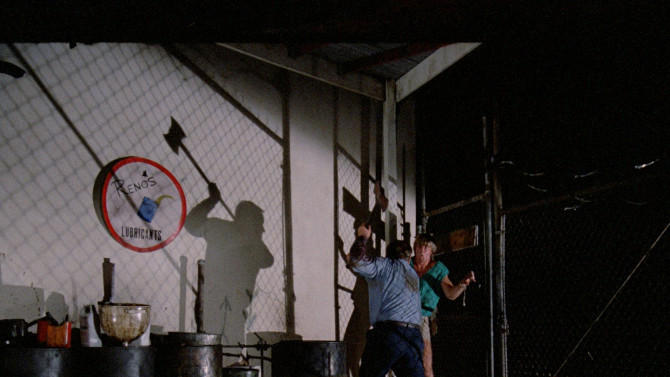
Flashback Slashback
A bizarre, below B grade indie horror/sci-fi/teen sex comedy hybrid, 1985's Evils of the Night, co-written and directed by Mardi Rustam, attempts to bring in the most popular genre films of the decade – think a combination of Friday the 13th, The Thing, and Revenge of the Nerds (minus the nerds), making for a surprisingly entertaining, if poor film (that all revolves around a battle of the ages – notice I used the word ‘of’ instead of ‘for’). An overly excessive, gloriously pushed to the brink example of the 80s indie horror scene, you’ll see more legs and breasts than in a family size bucket of KFC chicken, more hair than a twenty-four pack of Busch beer, and, as it is mostly set in a picturesque forest, you’ll see more hardwood than softwood – if you catch my drift. Of course, I’m talking about the raucous teen party going on here, including some fetching young men and women – engaged couple Ron (Keith Fisher) and Heather (Bridget Holloman), as well as poor Brian (David Hawk), who endlessly struggles to win over ditzy blonde Connie (G.T. Taylor) and the slightly less ditzy Nancy (Karrie Emerson). Now, before you feel too sorry for the girls in regards to the nudity, for these young actresses, fear not – ringers, and by that, I mean pornstars (i.e. Amber Lynn, Crystal Breeze), were brought in for the edgier stuff.
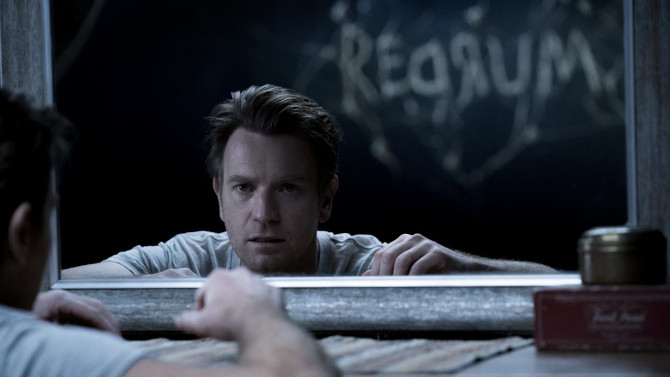
Midnight, the Stars and You
Walking a tightrope between overt nostalgia picture and standalone film in its own right, 2019's Doctor Sleep comes to life thirty-nine years after Stanley Kubrick’s The Shining became an instant horror classic loved by almost everyone. . . except by its own author, Stephen King. This time, writer/director Mike Flanagan attempts to appease both sides, a gargantuan task that would could cause almost any talented film maker to crumble under the weighted pressure. . . yet somehow, he is able to stay on that extremely narrow tightrope, building an engaging narrative that should be fun for both hardcore fans and newbies to the so-called franchise. If The Shining was about addiction, Doctor Sleep looks at the long road back through rehabilitation to sobriety. Sometimes lost in all of the over-the-top craziness coming from Jack Nicholson’s fantastic portrayal of Jack Torrence, his poor son Danny must have had quite the life afterwards. Giving us a bird’s eye view into this character, he is now an alcoholic adult (played by Ewan McGregor), running from his past demons and any semblance of a normal life in the present.
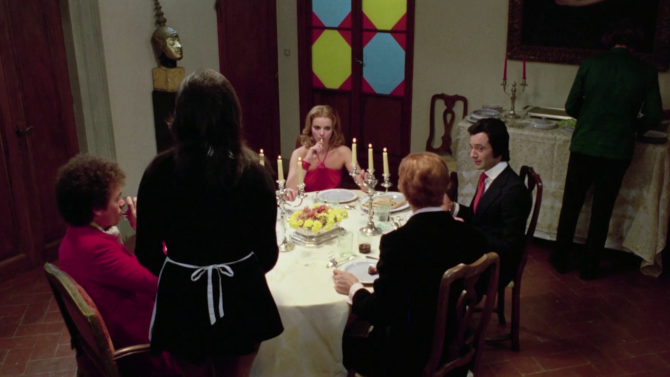
Parisi Place
And suddenly, a new contender arises. . . and by that I mean for all-time great giallo titles. Evoking the very essence of the Italian genre, 1975's The Police Are Blundering in the Dark, directed by one-and-done film maker Helia Colombo, may not have the sheer audacity of a title along the lines of Your Vice is a Locked Room and Only I Have the Key, or the more macabre imagination of Death Walks on High Heels, but it is murder mystery cool personified. With the police only arriving for the final few minutes of the film (making it all a bit misleading). . . the title is actually in reference to a newspaper headline highlighting the incompetence of the fuzz in rural Italy. With four nude models having recently been murdered (by way of scissors or some other sharp instrument) – oh, the humanity!!! – all roads somehow lead to the Parisi estate.
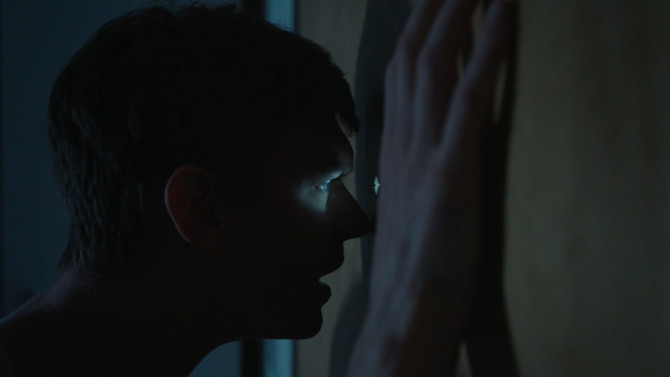
No Strings Attached
Having everything that is needed to build a spine tingling horror short, writer/director/cinematographer Jaron Henrie-McCrea’s just under four minute film, Peephole (2018), is one of the easiest and spookiest watches you’ll enjoy this Halloween season. Centred on a sole person, simply known as Man (Tim Lueke), and never hearing even a single word of dialogue, our character can be found asleep on his comfy couch in his small apartment. We’ve all been here before. . . late at night, our eyes becoming heavy, the television, whether exciting or boring (after all, not every infomercial has a knife that can cut through shoes), isn’t enough to keep us from dozing off.
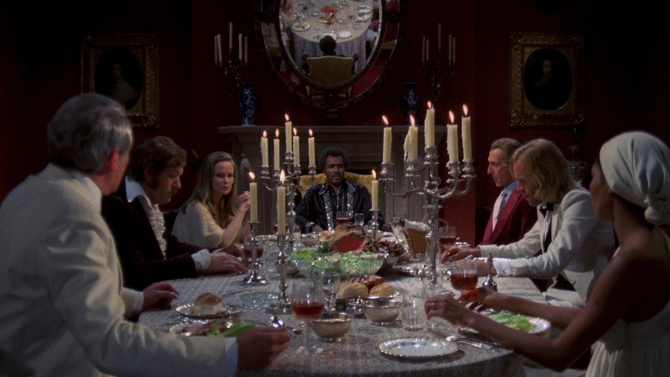
Missed the Bloody Cut: 2020 (Part 2)
After the resounding success of Part 1, here is my second set of Missed the Bloody Cut reviews for 2020. . . featuring three more eccentric horror films that didn’t make the grade, but deserve to be recognized for a number of reasons anyway. Enjoy!
